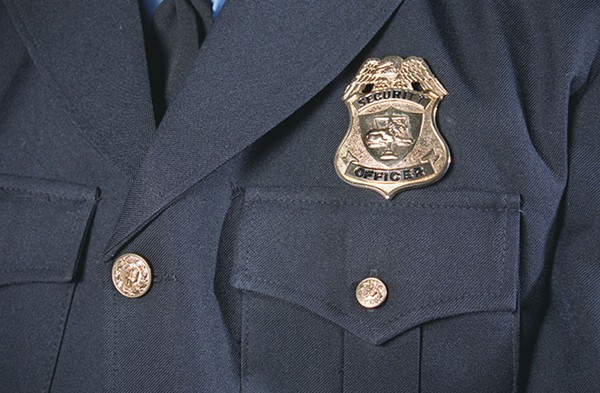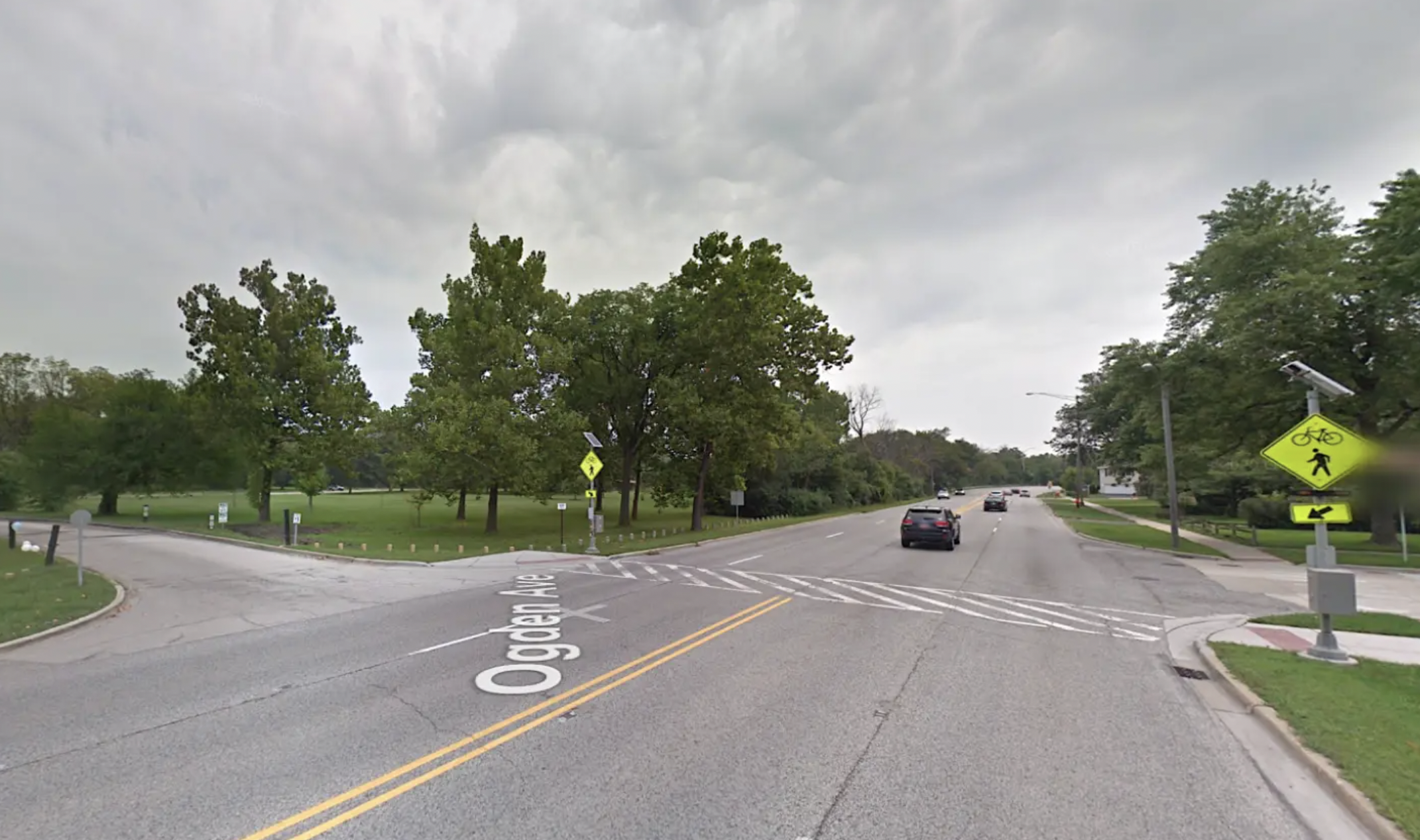[Streetsblog Chicago editor John Greenfield publishes a weekly transportation column in the Chicago Reader. We syndicate the column on Streetsblog Chicago after it comes out online. This article is bit outside the usual subject matter for SBC, but since it covers a mobility justice issue, I thought it would be of interest to readers.]
When Jill Hopkins saw a post on the Facebook discussion group Ukrainian Village Neighborhood Watch about a proposal to hire private security guards to patrol a portion of the neighborhood in cooperation with the Chicago Police Department, it raised red flags. Host of the talk show Morning AMp on WBEZ's sister station, Vocalo, Hopkins lived in Ukrainian Village in the 2000s, and she regularly checks the neighborhood watch group, along with similar pages in a few other communities, as part of the research for her broadcast.
The UVNW was started several years ago to discuss safety- and crime-related topics, mainly in the area bounded by Grand, Ashland, Division, and Western. It's frequently updated with info from CPD on recent local crimes, and members are encouraged to post about suspicious or illegal activity. Residents also sometimes comment about people whom they feel are loitering in the area with bad intent. References to African-American and Latino youth are common.
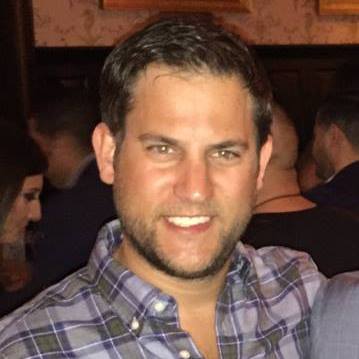
"The Ukrainian Village Neighborhood Watch page is racist, reactionary, and classist," Hopkins wrote on January 3 in a post on her personal Facebook page that has since been shared several times by others. "If you're a person with dark skin in UKV, keep safe. You're a suspect to your neighbors."
Hopkins shared a screenshot of a January 2 post on the UVNW group by a resident named Jeff Steinberg in which he announced an idea to address rising levels of violent crime in the neighborhood. Steinberg, 36, is a former Arlington Heights resident and cofounder of SO Holdings LLC, a real estate development company specializing in buying distressed properties, including short sales and foreclosures.
In his post Steinberg said he's in talks with a private security company about possibly hiring guards to patrol the three-block-square area bordered by Grand, Damen, Chicago, and Paulina, where he resides, at night. He indicated that he plans to coordinate with the Chicago Grand Neighbors Association, the local aldermen, and the police department. Since the specifics of the proposal are still being worked out, it's not clear whether the guards would be off-duty police officers or civilians, or whether they would carry firearms. Steinberg asked neighbors who might be interested in chipping in to cover the cost of the service to stay tuned for details.
"They want George Zimmermans running around," Hopkins wrote on her own page, referring to the neighborhood watch coordinator who fatally shot African-American teen Trayvon Martin in Florida in 2012. "They're going to get one of us killed."
Hopkins, who's black, has a multifaceted perspective on issues of crime, law enforcement, and racial profiling. She grew up in South Shore, and has an aunt and a cousin who've worked as Chicago police officers. "They're great," she says. "They did their jobs well. I'm not necessarily anti-cop—I'm anti-police misconduct and police violence."
But she says she's also had a number of negative experiences with police and profiling. About three years ago Hopkins and her husband, Aaron Olewnik, who's white, heard a "ruckus" outside their house in Humboldt Park as police looked for a suspect in the gangway. When they went outside, she says, the officers addressed her spouse as "Sir" but ignored her, even though they were both asking the same questions. "You can never tell if it's a racial thing or a gender thing, so I default to both."
Hopkins adds that at least a few times a year she experiences racial profiling at stores. "It always seems to happen right before Aaron shows up. Security certainly has an eye on me, or I'm held up at the front counter while he's parking the car. And then he walks in and suddenly everything's fine."
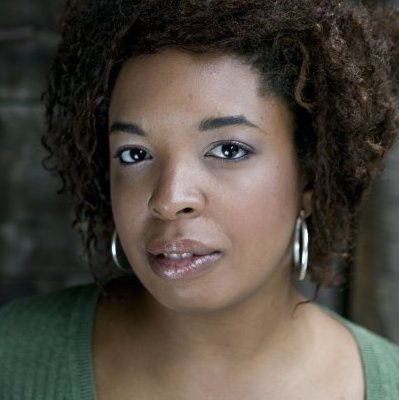
And Hopkins's family has been profoundly impacted by violent crime. In summer 2016 her younger brother, who's now 28 and was working for UPS at the time, was shot in the back on the southeast side, leaving him paralyzed from the waist down. "I believe it was a gang initiation thing and my brother was in the wrong place at the wrong time," she says.
Even then, though, she adds, the responding officers treated her brother like he was a criminal, not the victim: "They were extraordinarily rude. He's a young man bleeding out on the sidewalk—treat him with some respect and empathy." She may have police officers in her family, but she says that as a result of these experiences she tries to keep her interactions with police to a minimum.
Crime is less common in West Town, the community area that contains Ukrainian Village, than in many other parts of Chicago. But by all accounts, incidents of burglaries, muggings, shootings, and other crimes have been on the rise in the area in recent years.
In August 2017, after four carjackings took place in the community within the space of a few days, neighborhood groups hosted a community meeting with the 12th District police captain and local aldermen Joe Moreno (First) and Brian Hopkins (Second, no relation to Jill), as well as organizing a letter-writing campaign "demanding urgent action on crime." According to a report by DNAinfo's Alisa Hauser, more than 100 people attended the hearing. Many blamed the crime spike on the 2012 consolidation of the 12th and 13th Districts and the closure of the 13th District's Wood Street police station, which reduced the number of officers in the area from more than 500 to 339 as of August. During the meeting an East Village Association board member, citing CPD statistics, said carjackings and robberies in the 12th District were up more than 60 percent compared to 2016.
West Town residents were particularly shocked last November when a robber intentionally shot 69-year-old Silvia Berger in the knee after snatching her purse in an alley on the 1900 block of West Erie. Police statistics for the first week of 2018 also show increases in the numbers of robberies, aggravated batteries, and burglaries compared to the same period last year.
It's not uncommon for private security guards to be hired to patrol Chicago neighborhoods and business strips where there are concerns about crime. Gold Coast residents have paid for private guards, and in Lakeview the Southport Community Alliance, a neighborhood group that includes Cubs manager Theo Epstein, has retained a security company to patrol the area. The University of Chicago's campus police have supplemented the CPD presence in Hyde Park for decades, and in recent years private guards have been stationed along the increasingly vibrant 53rd Street retail corridor. Lately Alderman Hopkins has been pushing for patrols of Wicker Park and Bucktown business strips.
Such initiatives aren't without controversy. In addition to the racial profiling issue, some residents argue that outsourcing crime prevention lets the CPD off the hook for maintaining public safety and encourages further reductions in the police force. Others maintain that when affluent citizens hire private patrols, crime problems are pushed into less fortunate areas and security becomes a luxury item.
The CPD doesn't provide recommendations or guidance on private security matters, but spokesman Anthony Guglielmi outlined the laws governing the industry. "Off-duty officers [working as private guards] have powers of arrest, while licensed security guards can provide heightened visibility and patrol functions and detain subjects while police arrive," he said.
Steinberg declined to talk about his plan on the record, citing fear of a backlash. The day after we discussed this matter, I was blocked from the Ukrainian Village Neighborhood Watch group. (The UVNW policy page states that reporters may not quote from comments on discussion threads without permission from the original poster. Steinberg didn't grant it, so I have paraphrased parts of the discussion.)
Posts on Steinberg's thread were split fairly evenly for and against his idea. I contacted ten participants via Facebook to get approval to include them in the article, including five people who voiced opposition and five who expressed support. All of the opponents granted permission, but only one commenter who spoke positively about Steinberg's idea responded.
Dan Levengood, an advertising professional who's lived in Ukrainian Village for about six years, commented that he believes hiring guards from a for-profit company to patrol the area is a terrible idea, and as soon as there's a petition against it, he's ready to sign. He sarcastically proposed that the next step should be building a wall around the neighborhood to prevent outsiders from entering at all, and encouraging all neighbors to carry special ID cards.
Levengood later told me that he agrees that the rise in crime in the area is alarming. He attributed the uptick in package thefts, muggings, and carjackings to the neighborhood becoming increasingly affluent. "I think people tend to hit areas where there is wealth," he said. "I want to be safe, but I don't want to live in a police state. Police already have a hard time using the power they have in a respectful way."
Katarzyna Z Walters-Myers, who's lived in Ukrainian Village for five years, argued on the thread that Steinberg's proposal to have security guards bankrolled by residents who have sufficient disposable income to do so smacked of elitism. Although she said that she had been robbed at her workplace and assaulted while walking on Chicago Avenue, she added that more guns on the street wouldn't make her feel safer. Instead, she proposed investing in more street lights and more reliable bus service, plus social programs that reduce the need for people to turn to crime, such as addiction counseling, affordable housing, youth mentoring, and quality public education.
Jim Ziniel, who works at a financial technology company and has lived in the area for eight years, agreed that it's important to address the underlying societal issues behind the crime wave. But he credited Steinberg with proactively coming forward with a new idea that could improve safety.
Jill Hopkins posted on the forum to ask if Steinberg, who's white, understands that black and brown residents not only have to worry about street crime like everyone else, but also have to be concerned about being harmed by authority figures with guns, who often go unpunished for killing unarmed African-Americans. "That's another thing on my plate, worrying about being shot because some people are afraid of my ethnicity," she later told me. She added that she found it upsetting that many people on the forum didn't seem willing to acknowledge that issue.
Steinberg responded by stating that his proposal didn't have racial overtones, since crime affects people of all backgrounds. He added that didn't appreciate Hopkins implying that the neighborhood patrol would involve racial profiling when its real purpose would be to make the streets safe for everyone.
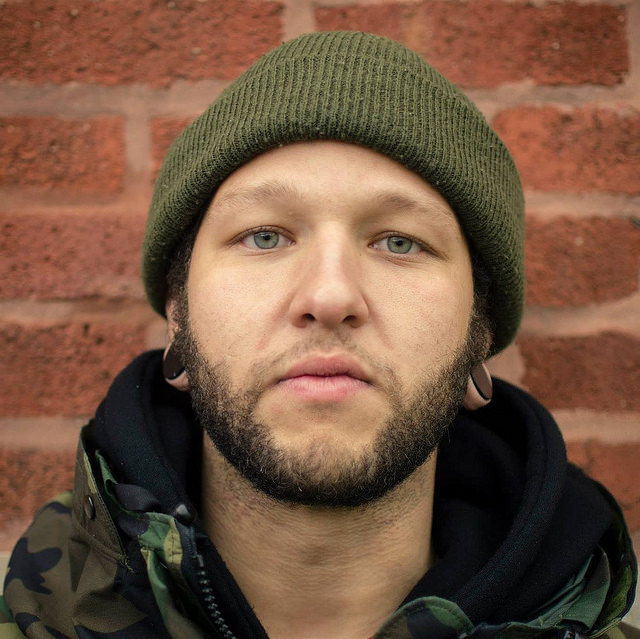
Lauren Do, an African-American who works as a patient coordinator and lives in the proposed patrol area, countered that it's crucial to include race in the discussion, adding that it was wrong of Steinberg to dismiss Hopkins's concerns.
Throughout the discussion, when opponents critiqued Steinberg's plan, he responded that people who didn't support hiring security guards weren't obliged to help pay for them.
But Mike Warne, a paramedic who moonlights as a bartender and lives near Augusta and Western, argued that the neighborhood patrol issue isn't that simple, since it will impact people's lives whether they like it or not. As the son of a black mother and white father, he said he found it chilling that there was a possibility that he could be pegged by guards as a criminal due to his phenotype, and feared things would be much worse for African-Americans with darker complexions.
Warne later told me that, due to his light skin tone and eye color, it's fairly common for people at his bar or on el trains to assume he's not black and make racist comments about African-Americans in his presence. On the other hand, like Hopkins, he says he sometimes gets followed around in stores due to his appearance, and once someone even called the cops on him while he was walking his dog.
On another occasion he went to pick up a vacuum cleaner from a Craigslist ad, parked his car outside the seller's apartment, and called the man. "I s--- you not, he told me to wait a minute and be careful because there was a suspicious-looking black guy in a car outside of his place. I asked him what kind of car and he described my car. I told him it was me. And I still got the vacuum!"
Stories like these illustrate that while racial profiling can be a largely invisible phenomenon to white folks, it's a fact of life—and a potential source of physical violence—for many Chicagoans of color. As such, if Steinberg and other neighbors want to move forward with hiring security guards, it will be crucial for residents who don't have to worry about profiling to listen to those who do and be sensitive to their real concerns about the potential for the patrol to do more harm than good. So far that hasn't happened.
